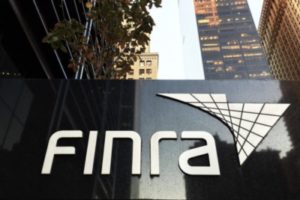A Real Estate Investment Trust or REIT as the name suggests is an investment vehicle in that invests in real estate. A REIT may invest in any form of real estate including undeveloped land, commercial space, office buildings, shopping centers, medical centers, apartments, agricultural property, or any other form of real estate.
A REIT is a form of pass through investment, whereby income earned by the trust is passed through to the investor without being taxed at the corporate or trust level. However, under the US Tax Code, in order to qualify as a REIT, the entity must distribute at least ninety percent of its taxable income annually to shareholders. These distributions to shareholders are tax deductible to the REIT.
There are generally two types of REITs that are sold to the investing public: Publicly traded REITs and non-publicly traded REITs. Publicly generally traded REITs trade on an exchange much like the shares of any other public company.
 As their name implies, non-publicly traded REITs have no public trading market. Instead of being able to sell these shares on an exchange, investors in non-publicly traded REITs, generally have to wait until the REIT is dissolved, usually within a finite period, to get their money back. Some REITs do however directly offer investors some form of redemption directly from the REIT, but these redemption provisions generally can be withdrawn or discontinued at any time, or may be subject or conditioned on other special circumstances.
As their name implies, non-publicly traded REITs have no public trading market. Instead of being able to sell these shares on an exchange, investors in non-publicly traded REITs, generally have to wait until the REIT is dissolved, usually within a finite period, to get their money back. Some REITs do however directly offer investors some form of redemption directly from the REIT, but these redemption provisions generally can be withdrawn or discontinued at any time, or may be subject or conditioned on other special circumstances.
Most non-publicly traded REITs are sold directly to small investors by networks of financial advisers and securities broker-dealers. It is often said that non-publicly traded REITs are sold not bought.
Stockbrokers like non-publicly traded REITs because the front-end fees can be as much as 15%, and in some cases stockbrokers and their firms are provided additional annual compensation often as long as their customers do not attempt to redeem these securities. Stockbrokers also like REITs because they are an easy sell to investors seeking income, in a low interest rate environment, and because they may appear conservative offering the security associated with the ownership of real estate. No surprise that last year stockbrokers sold investors $20 billion of non-publicly traded REITs.
 Investors however are often unaware that these non-publicly traded REITs are often highly leveraged with debt and that while they may produce significant income for investors, at least initially, they are making these distributions by borrowing or are simply giving investors their money back. Moreover, these distributions are not guaranteed and in most cases are merely discretionary.
Investors however are often unaware that these non-publicly traded REITs are often highly leveraged with debt and that while they may produce significant income for investors, at least initially, they are making these distributions by borrowing or are simply giving investors their money back. Moreover, these distributions are not guaranteed and in most cases are merely discretionary.
Also investors are often unaware that when these REITs effect transactions they are often paid fees of as much six percent, not including real estate commissions and other fees.
However probably most importantly, the lack of a public trading market creates illiquidity and valuation complexities. Early redemption is often restrictive and very expensive. Most public non-traded REIT offerings place limits on the amount of shares that can be redeemed prior to liquidation. The redemption price is generally lower than the purchase price, or even the valuation price sometimes by as much as 10 percent.
In one case, the Inland Western Real Estate Investment Trust, now known as Retail Properties of America raised $4.9 billion in equity when it went public, or more accurately was sold to the investing public. However, as of last year, the REITs equity value dropped to $1.7 billion or a decrease of almost 60%.
Similarly, Inland American raised $8.9 billion in equity, but as of September last year, dropped $2.6 million. Investors purchasing these shares for $10, saw a $6.95 valuation on their statements or more than a 30% loss, even though they could not sell these shares.
Although it stopped selling these securities last year, Ameriprise Financial Services Inc. was the largest seller of both these offerings. Inland however still has a selling agreement with LPL Financial, the largest independent broker-dealer in the country.
 Last year, the Commonwealth of Massachusetts settled a claim against Ameriprise in connection with the sale of non-publicly traded REITs to customers in violation of the state’s limitation of the sale of these securities to unqualified investors in violation of the firm’s own suitability rules and supervisory procedures. Ameriprise sold more than $54 million of these securities to customers in Massachusetts but agreed to offer some of these customers restitution and pay a $400,000 fine.
Last year, the Commonwealth of Massachusetts settled a claim against Ameriprise in connection with the sale of non-publicly traded REITs to customers in violation of the state’s limitation of the sale of these securities to unqualified investors in violation of the firm’s own suitability rules and supervisory procedures. Ameriprise sold more than $54 million of these securities to customers in Massachusetts but agreed to offer some of these customers restitution and pay a $400,000 fine.
Securities broker-dealers engaged in the sale of non-publicly traded REITs are required to provide valuations within 18 months after the end of a non-traded REIT offering and must comply with FINRA Rule 2340 and FINRA’s Notice to Members (09-09) regarding timeliness of data supporting account statement valuations.
However, many of these valuations are perceived as being contrived. In one case, brought against David A. Lerner Associates it is alleged that since 2004, their Apple REITs were valued at a constant price of $11 notwithstanding market fluctuations, performance declines and increased leverage, while maintaining outsized distributions of 7-8 % by leveraging the REIT through borrowing and returning capital to investors. Since 1992, David A. Lerner Associates generated more than $600 million in fees as been the sole underwriter of the Apple REITs , selling nearly $6.8 billion of the securities to 122,600 customer accounts.
 In May 2013, FINRA issued Regulatory Notice 13-18 reminding stockbrokers and securities broker-dealers that Rule 2210 requires that a broker-dealer’s communications be fair, balanced and not misleading but that its review of communications with the public regarding real estate programs have revealed deficiencies, including “inaccurate or misleading statements regarding the potential benefits of investing in real estate programs.”
In May 2013, FINRA issued Regulatory Notice 13-18 reminding stockbrokers and securities broker-dealers that Rule 2210 requires that a broker-dealer’s communications be fair, balanced and not misleading but that its review of communications with the public regarding real estate programs have revealed deficiencies, including “inaccurate or misleading statements regarding the potential benefits of investing in real estate programs.”
FINRA also found that other communications over emphasized the distributions paid by non-publicly traded REITs but failed to adequately explain that some of these distribution are return of principal, or that these securities might not be redeemable or could not be sold. In some cases FINRA also found that in communications with the public, it was stated or implied that a distribution rate is a “yield” or “current yield” creating the illusion that by a non-publicly traded REIT is comparable to a fixed income investment such as a bond or note.
Guiliano Law Group
Our practice is limited to the representation of investors. We accept representation on a contingent fee basis, meaning there is no cost to you unless we make a recovery for you. There is never any charge for a consultation or an evaluation of your claim. For more information, contact us at (877) SEC-ATTY.
For more information concerning common claims against stockbrokers and investment professionals, please visit us at securitiesarbitrations.com. To learn more about FINRA Securities Arbitration, and the legal process, please visit us at securitiesarbitrations.com
